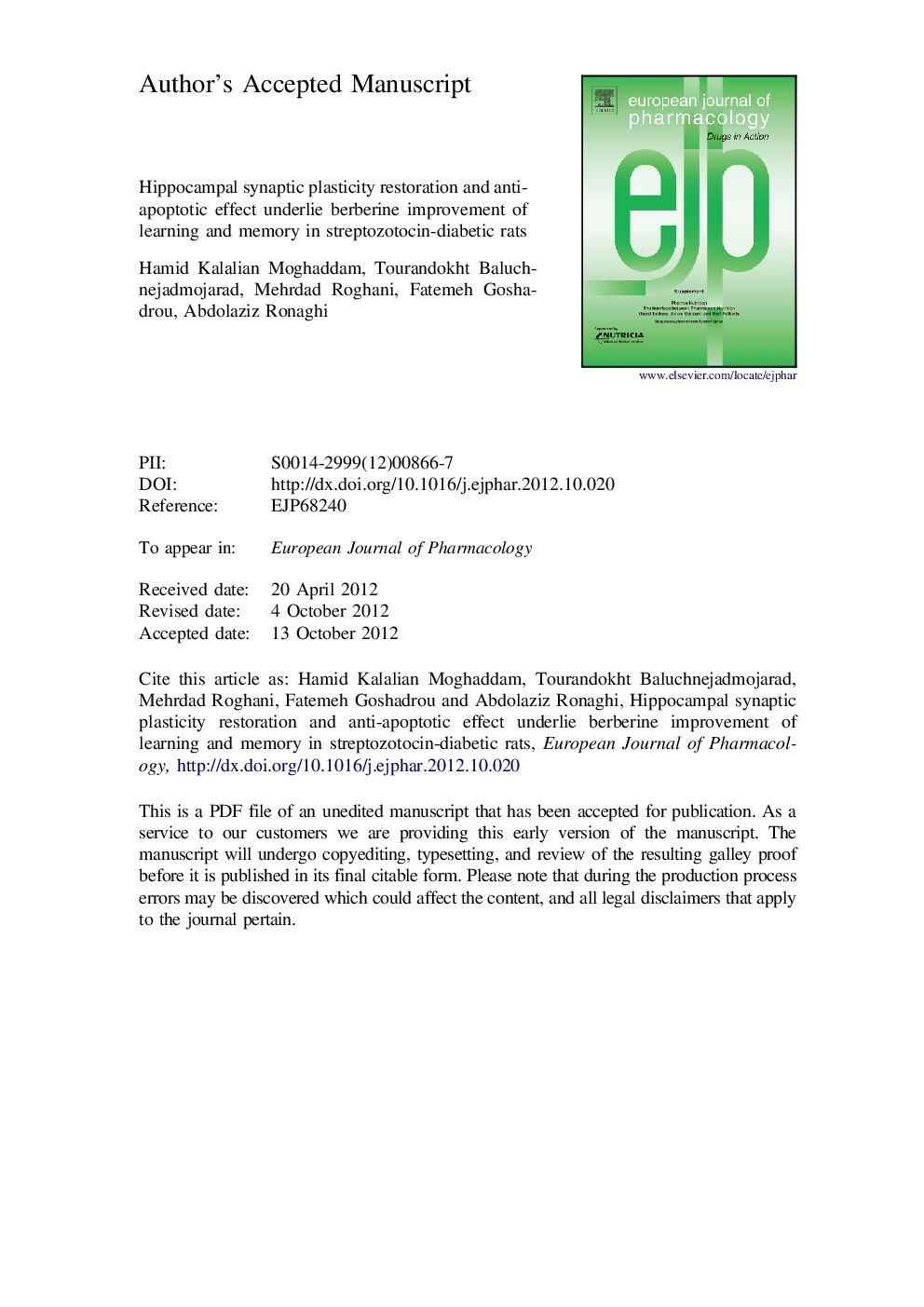| Article ID | Journal | Published Year | Pages | File Type |
|---|---|---|---|---|
| 5828963 | European Journal of Pharmacology | 2013 | 27 Pages |
Abstract
Chronic diabetes mellitus initiates apoptosis and negatively affects synaptic plasticity in the hippocampus with ensuing impairments of learning and memory. Berberine, an isoquinoline alkaloid, exhibits anti-diabetic, antioxidant and nootropic effects. This study was conducted to evaluate the effect of berberine on hippocampal CA1 neuronal apoptosis, synaptic plasticity and learning and memory of streptozotocin (STZ)-diabetic rats. Long-term potentiation (LTP) in perforant path-dentate gyrus synapses was recorded for assessment of synaptic plasticity and field excitatory post-synaptic potential (fEPSP) slope and population spike (PS) amplitude. PS amplitude and fEPSP significantly decreased in diabetic group versus control, and chronic berberine treatment (100Â mg/kg/day, p.o.) restored PS amplitude and fEPSP and ameliorated learning and memory impairment and attenuated apoptosis of pyramidal neurons in the CA1 area, as determined by the terminal deoxynucleotidyl transferase (TdT)-mediated dUTP nick end-labeling method. In summary, chronic berberine treatment of STZ-diabetic rats significantly ameliorates learning and memory impairment and part of its beneficial effect could be attributed to improvement of synaptic dysfunction and anti-apoptotic property.
Related Topics
Life Sciences
Neuroscience
Cellular and Molecular Neuroscience
Authors
Hamid Kalalian-Moghaddam, Tourandokht Baluchnejadmojarad, Mehrdad Roghani, Fatemeh Goshadrou, Abdolaziz Ronaghi,
